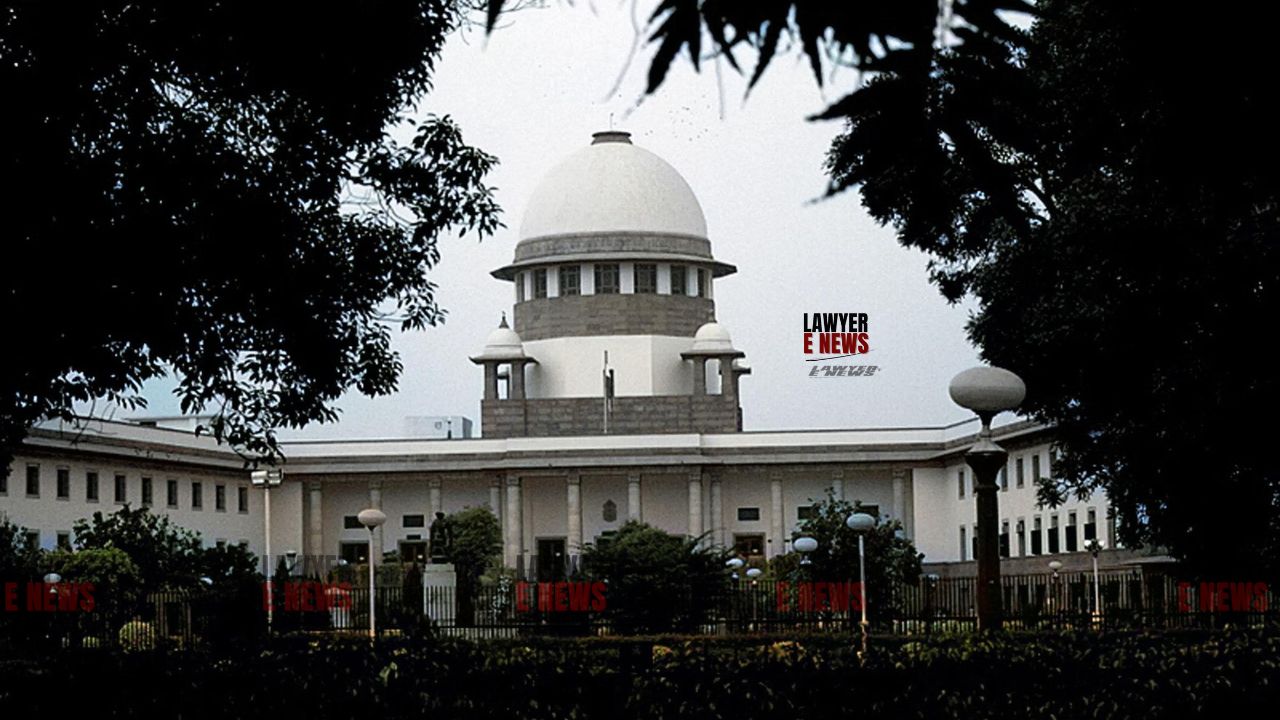-
by Admin
15 February 2026 5:01 PM



In a pivotal judgment Supreme Court of India quashed criminal proceedings initiated against the appellants under Sections 323, 504, 506, 509, and 511 of the IPC, emphasizing the absence of prima facie evidence. The Court noted that the proceedings stemmed from a workplace dispute involving allegations of harassment and wrongful termination, which were fundamentally civil in nature.
The bench, comprising Justice Dipankar Datta and Justice Prashant Kumar Mishra, ruled: "Allowing criminal proceedings to continue without any substantive evidence would result in an abuse of the legal process and a travesty of justice."
The Court found that the allegations, including the use of "filthy language" and threats during the complainant's termination, did not disclose the essential ingredients of the charged offences, nor did they establish the requisite intent or knowledge for criminal liability.
"Mere Use of Filthy Language Without Context Does Not Amount to Insulting Modesty Under Section 509 IPC"
The Supreme Court critically evaluated the allegations under Section 509 IPC (insulting the modesty of a woman) and held that the mere assertion of "filthy language" by the complainant, without contextual details or specific evidence, failed to meet the legal threshold for the offence. The Court emphasized:
"Modesty is not a vague concept. To insult a woman’s modesty, the act or words must be such that they shock her sense of decency and dignity. Mere abusive words, without more, do not fall within the ambit of Section 509 IPC."
The judgment drew on precedents such as Rupan Deol Bajaj v. Kanwar Pal Singh Gill (1995) and State of Punjab v. Major Singh (1967) to highlight the importance of proving intent and context in cases involving modesty-related offences.
"Absence of Bodily Harm or Specific Threats Makes Criminal Intimidation Unsustainable Under Section 506 IPC"
The Court also addressed the complainant's claims of threats and intimidation under Section 506 IPC. It held that vague and generalized allegations of threats related to termination did not constitute criminal intimidation as defined under the law. The Court observed: "For an offence under Section 506 IPC, there must be a specific, intentional act of threatening that creates alarm or coerces the victim into doing or omitting an act. Mere statements related to employment disputes do not meet this standard."
"Employer Cannot Be Held Liable for Acts of Security Personnel Without Direct Evidence of Conspiracy or Intent"
In examining the allegations of physical harassment during the complainant's removal from the workplace, the Court found that the security personnel’s actions could not be imputed to the appellants in the absence of evidence suggesting their involvement. The judgment stated: "Liability in criminal law requires a clear connection between the accused and the alleged acts. Without evidence of foreknowledge or conspiracy, the appellants cannot be held accountable for the actions of the security staff."
The Court also highlighted the complainant's failure to name the security personnel in the FIR or chargesheet, further weakening the prosecution's case.
"Quashing Criminal Proceedings Under Section 482 CrPC Is Essential to Prevent Misuse of Law"
The Supreme Court reiterated the importance of exercising inherent powers under Section 482 CrPC to quash criminal proceedings in cases of misuse of the legal process. Citing Fiona Shrikhande v. State of Maharashtra (2013) and other precedents, the Court held: "The continuation of criminal proceedings in the absence of prima facie evidence would constitute a gross abuse of the legal process. Courts must ensure that criminal law is not used as a tool for harassment or coercion."
The Court also expressed concern over the apparent mala fide intent behind the criminal complaint, noting: "The discrepancies in the complaint, the delay in filing the FIR, and the absence of specific allegations against the appellants strongly suggest that the proceedings were initiated to coerce a settlement in the ongoing labour dispute."
The Supreme Court quashed the chargesheet and criminal proceedings against the appellants, emphasizing the lack of prima facie evidence for the alleged offences. The bench also set aside the Karnataka High Court's order dismissing the appellants' petition under Section 482 CrPC.
In its concluding remarks, the Court clarified: "Our findings shall have no bearing on the pending labour dispute between the parties before the Labour Court. The present decision only addresses the abuse of criminal law in this matter."
"Criminal Law Cannot Be Weaponized to Resolve Workplace Disputes"
This judgment sends a strong message about the limits of criminal law in resolving workplace disputes. By drawing a clear distinction between civil and criminal liabilities, the Supreme Court has reaffirmed the importance of preventing the misuse of criminal law for personal vendettas or coercive tactics.
The case underscores the judiciary's role in safeguarding individuals from frivolous litigation while upholding the principles of justice and fairness.
Date of decision: 24/01/2025
